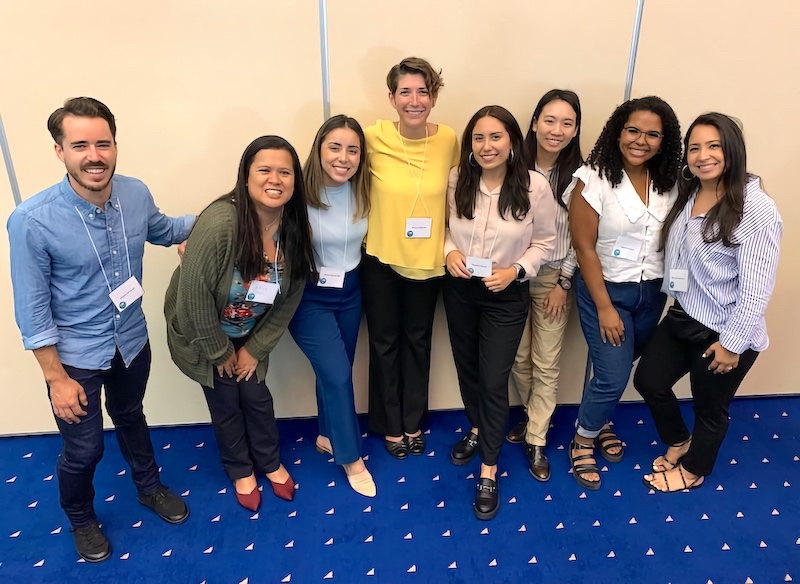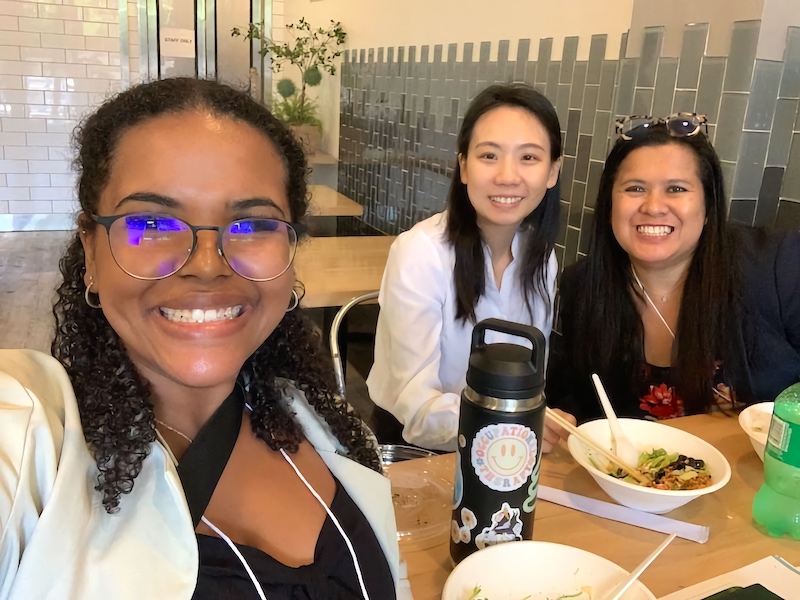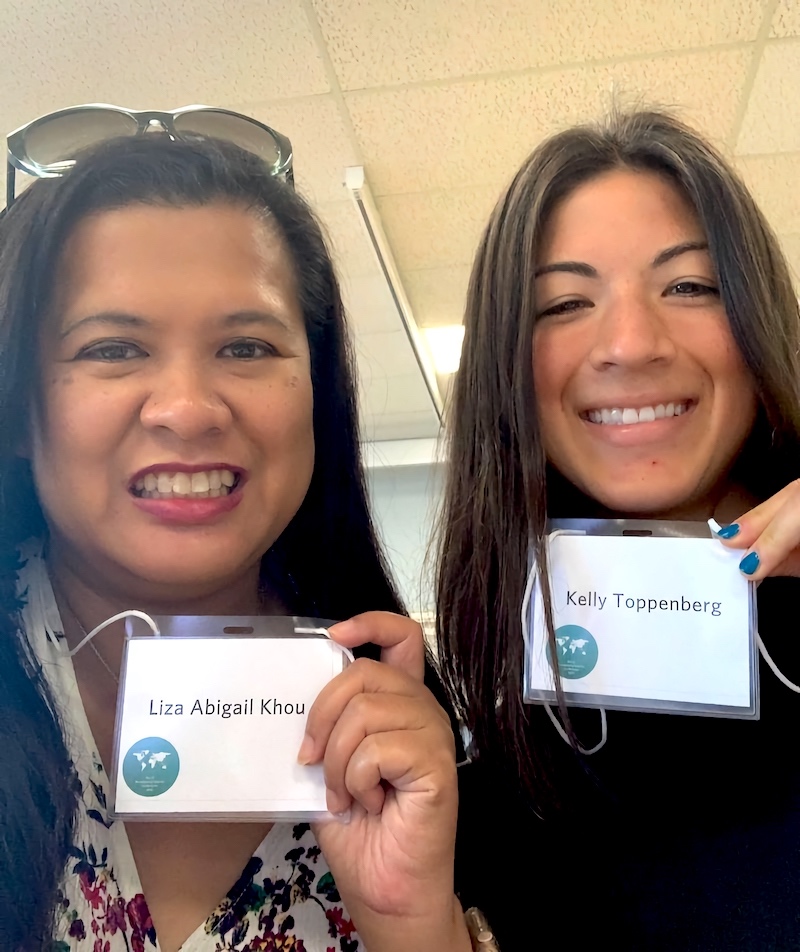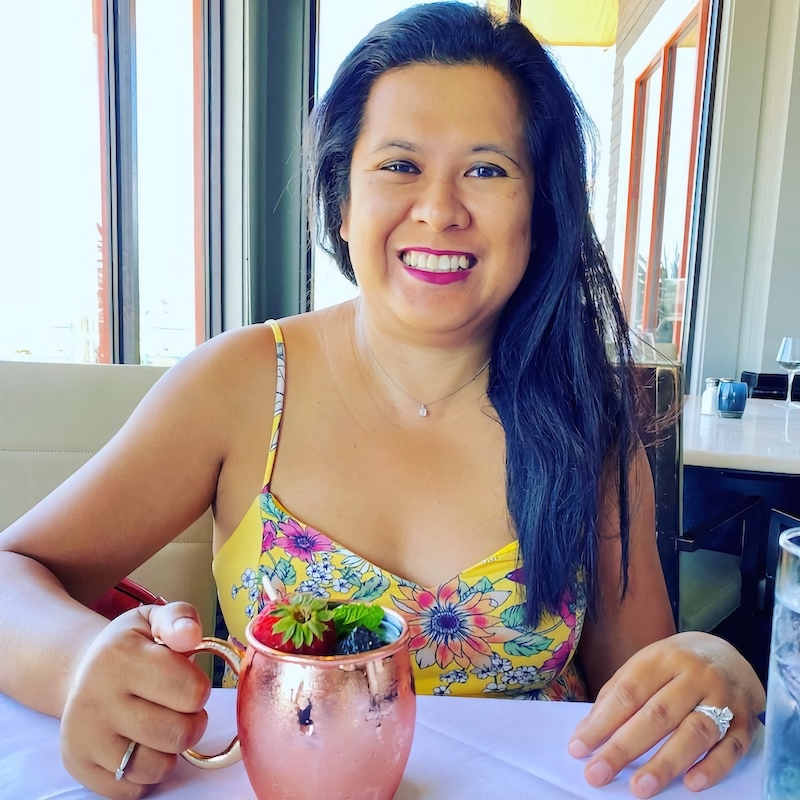WOSC 2022: Redefining Inclusion Towards Social Transformation
September 12, 2022
by Global Initiatives Team
By Abby Khou, MA ’23
The inaugural World Occupational Science Conference was a gathering of occupational scientists, occupational therapy students, practitioners and educators, and members of the interdisciplinary world who have dedicated their lives to the work of social transformation through the knowledge from the body of work of Occupational Scientists. Held at the Sheraton Wall Vancouver Centre in Vancouver, British Columbia, one of the featured speakers at WOSC 2022 was Dr. Sridhar Venkatapuram, Associate Professor in Global Health and Philosophy at King’s College London and Deputy of King’s Global Health Institute and Director of Global Health Education. Dr. Venkatapuram spoke about the importance of values in science and promoting a capabilities approach that emphasizes quality of life, among other themes that set the tone for conference. Dr. Lilian Magalhães was another featured speaker, and is an adjunct professor at Federal University of São Carlos, Brazil and Associate Professor at Western University in Canada where she is Professor Emeritus. She highlighted her lifelong work in Occupational Science, her familial roots, and the commitment of Occupational Science to social transformation. The inaugural event was hosted by the University of British Columbia Occupational Science and Occupational Therapy and the International Society for Occupational Science.

Adam Strizich, Abby Khou, Silvia Hernandez, Dr. Rebecca Aldrich, Daniela Flores, Yen Wen Pan, Kayla Brown, Monica Martinez
Our very own Dr. Rebecca Aldrich, Chair of the International Society of Occupational Science, along with Lisette Farias, Debbie Laliberte Rudman, Lilian Magalhães, Nick Pollard, and Roshan Galvaan, led a dialogic session entitled: Promoting an ‘unconference’ space for transformation of occupational science through critical dialogue. According to Farias et al. (2022), an “unconferencing” approach “prioritizes participation, reflection, and dismantling presenter-attendee hierarchies” (p. 4). By sitting in two concentric circles, the outer circle was able to actively listen as the inner circle addressed the question prompts and verbalized their thoughts. Participants spoke about Occupational Therapists and Occupational Scientists working hand in hand to achieve social change, the need for interdisciplinary involvement, and breaking away from traditional modes of communication such as research, to more grassroots initiatives such as those involving social media.
As a USC Chan second-year master’s student, a mother to a 6-year-old diagnosed with ASD and first-time conference attendee, I appreciated the themes of inclusion, play as occupation, belonging and the access of children to play and play spaces and the overarching theme of mobilization towards social transformation. There were a few presentations that particularly struck me, and further ignited my desire to advocate for a redefined sense of inclusion, the promotion of belongingness within the ASD community, and the awareness of play as occupation.

Kayla Brown, Yen Wen Pan, Abby Khou

Abby Khou, Kelly Toppenberg
The passionate quality of the presentations on belongingness sometimes included tears, as presenters remembered their lived experiences of being a sibling to a disabled family member, or losing one’s cultural identity in the process of migration. I myself thought of my son Ethan while viewing “The Belonging Project: Conditions that support belonging for people with intellectual and developmental disabilities” presented by Paige Reeves, David McConnell and Shanon Phelan. I couldn’t help but share my own experiences as a member of the special needs parents community, sometimes being caught up in the pursuit of “services,” filling up my son’s schedule with therapy and appointments. “The Belonging Project” made me stop and think: does inclusion also result in exclusion if our idea of inclusion is for children to be included in manufactured spaces that we have created for them? Must we take away the agency of disabled children and plan out their days for them without consideration of where they truly want to be and who they desire to connect to? Is there a need to redefine the theory surrounding inclusion, mobilizing to translate into practice as we begin to chip away at the iceberg of social transformation? Reeves began her presentation quoting Reinders: “We create space and include people with [intellectual disability] as citizens . . . but do we also include them in our lives as human beings?”
The very definition of inclusion was questioned across different related presentations. The idea of having a “façade of inclusion,” that is, convincing ourselves as practitioners and caregivers of individuals with disabilities, that if we complete our checklists of the things we must do to advocate for our children’s inclusion, then our work is done. Comparing the façade of inclusion to the actual experience of being included was discussed in Paige Reeves, David McConnell and Shanon Phelan’s presentation: “The (radical) role of belonging in expanding and shifting understandings of social inclusion.” The Occupational Science perspective that the team was advocating for was a “paradigm shift” into a “meaningful involvement of disabled children’s voices.” What comes to mind is pediatric interventions that are child-led, respectful of families’ perspectives and culture, and the act of simply and truly listening in however way possible to the children when they communicate with us whether by verbal or by behavioral expression.
There is so much more to unpack from WOSC 2022 that I may not be able to express in this medium. I attempted to encapsulate such a wide and varied experience in the blog medium, but not quite able to represent all the meaningful experiences that I had at WOSC 2022. I had so many great and profound conversations and met so many wonderful people. As I moved from the conference back into my everyday life in my intersectional roles, I was filled with so many great ideas, a desire for social transformation and a further igniting of my passion for Occupational Science and Occupational Therapy. Maybe I left with more questions than answers, but that can be a good thing. Questions can lead to answers and answers can lead to solutions, and hopefully, continuing change.
References
Farias, L., Aldrich, R., Laliberte Rudman, D., Magalhães, L., Pollard, N., & Galvaan, R. (2022, August). Promoting an ‘unconference’ space for transformation of occupational science through critical dialogue [Dialogic session]. World Occupational Science Conference 2022, Vancouver, BC, Canada.
Reeves, P., McConnell, D., & Phelan, S. (2022a, August). The belonging project: Conditions that support belonging for people with intellectual and developmental disabilities [Paper presentation]. World Occupational Science Conference 2022, Vancouver, BC, Canada.
Reeves, P., McConnell, D., & Phelan, S. (2022b, August). The (radical) role of belonging in expanding and shifting understandings of social inclusion [Paper presentation]. World Occupational Science Conference 2022, Vancouver, BC, Canada.
⋯
Next by tag International ⟩ What are OS/OT? ⟩
⋯






